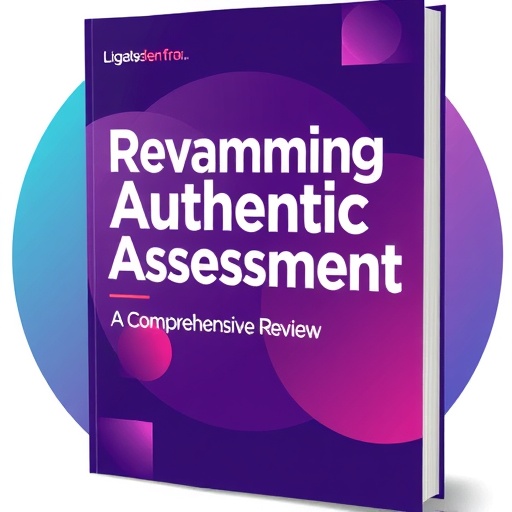In the realm of higher education, a transformative shift is occurring as institutions increasingly emphasize the need for authentic assessment practices. A recent scoping review conducted by researchers Zhan, Boud, and Du sheds light on the importance of designing assessments that not only measure student learning effectively but also mirror real-world challenges. This review outlines the essential components that constitute authentic assessments and investigates their impact on students’ learning experiences. As education progresses into an era prioritizing learner-centered approaches, the findings from this review provide critical insights for educators and curriculum designers aiming to enhance the relevance and effectiveness of their assessment methods.
At the heart of genuine learning experiences lies the concept of authentic assessment. This form of evaluation transcends traditional testing methods, which often prioritize rote memorization over critical thinking and practical application. Authentic assessments focus on tasks that reflect the complexities and unpredictabilities of real-life scenarios. Unlike conventional assessments, which may fail to engage students meaningfully, authentic assessments require learners to demonstrate their knowledge and skills in ways that are transformative and applicable beyond the classroom.
One of the compelling arguments for authentic assessment is its goal of fostering deeper engagement among students. Traditional assessments often disengage learners, making them feel like mere participants in a high-stakes game governed by grades. In contrast, authentic assessments invite students to be active agents in their own learning, enabling them to connect personal interests with academic pursuits. This engagement is crucial in ensuring that students not only learn concepts but also develop lifelong skills that enhance their readiness for future challenges.
The review by Zhan et al. articulates various principles that should underpin the design of authentic assessments. Firstly, assessments should be contextually grounded, allowing students to engage with materials and situations relevant to their fields of study. For instance, a business student might analyze a marketing campaign rather than taking a multiple-choice exam on theoretical models. Secondly, these assessments should embrace collaboration, reflecting the team-oriented nature of modern workplaces. By working together, students gain invaluable interpersonal skills and learn to value diverse perspectives.
Moreover, the review highlights the critical role of feedback in authentic assessment frameworks. It underscores the necessity for formative feedback mechanisms that guide students throughout their learning journeys rather than solely evaluating their final output. Instead of waiting for the result, continuous feedback channels allow students to refine their skills and deepen their understanding in real-time. This iterative approach fosters a culture of learning, where mistakes become stepping stones rather than roadblocks.
Importantly, authentic assessment promotes inclusivity and adaptability. As educational environments become more diverse, tailoring assessments to meet varied learning needs is paramount. Zhan and colleagues emphasize that assessments should recognize and accommodate different backgrounds and experiences. This necessitates ongoing dialogue between educators and students to ensure that assessments are equitable and that every learner has the opportunity to succeed.
The research also explores the technological advancements that play a pivotal role in facilitating authentic assessments. With the integration of digital tools, educators can design more sophisticated assessments that challenge students to think critically and creatively. Technology enables the simulation of realistic scenarios, multimedia presentations, and collaborative projects, enriching the assessment experience. Moreover, these tools allow for enhanced tracking of student progress and pinpointing areas where additional support might be needed.
As higher education institutions shift towards more authentic approaches, faculty development becomes essential. Educators must be equipped with the necessary skills and knowledge to design and implement assessments that embody authenticity. The scoping review by Zhan et al. recommends structured professional development programs that not only focus on the ‘how’ of assessment design but also the ‘why’ behind its significance in fostering meaningful learning experiences.
Furthermore, the transition to authentic assessment is not without its challenges. Resistance from traditionalists entrenched in conventional grading paradigms can hinder progress. Institutions will need to champion a culture that values innovation and encourages experimentation with assessment practices. This cultural shift requires leadership commitment, policy adjustments, and support systems that empower educators to embrace alternative assessment strategies.
Ultimately, the implications of adopting authentic assessment extend beyond individual educational experiences and touch upon broader societal impacts. By cultivating a generation of learners who are adept at critical thinking, collaboration, and problem-solving, higher education institutions contribute to a workforce that is better prepared to navigate the complexities of the modern world. This preparation is vital in a climate where employers increasingly seek graduates capable of adapting to change and tackling multifaceted challenges.
In conclusion, the review by Zhan, Boud, and Du stands as a significant contribution to the ongoing dialogue surrounding assessment in higher education. The authors successfully argue for a paradigm shift towards authentic assessment, advocating for designs that enhance student engagement, promote meaningful learning, and equip learners with the skills necessary for success in their future careers. As the educational landscape continues to evolve, it becomes imperative for institutions to embrace these insights and actively work towards fostering environments where authentic assessment thrives. In doing so, they not only enhance academic outcomes but also prepare students to make substantive contributions to society.
The journey toward authentic assessment is still in its infancy, yet the insights shared in this scoping review pave the way for a reimagined future in education. By prioritizing assessments based on real-world relevance and learner engagement, educators can unlock the potential of every student, ensuring that their educational experiences truly matter in an increasingly complex world.
Subject of Research: Authentic assessment practices in higher education
Article Title: Designing for authentic assessment: a scoping review
Article References:
Zhan, Y., Boud, D. & Du, Z. Designing for authentic assessment: a scoping review.
High Educ (2025). https://doi.org/10.1007/s10734-025-01588-9
Image Credits: AI Generated
DOI: https://doi.org/10.1007/s10734-025-01588-9
Keywords: Authentic assessment, higher education, student engagement, formative feedback, learner-centered approaches, curriculum design, educational technology.




